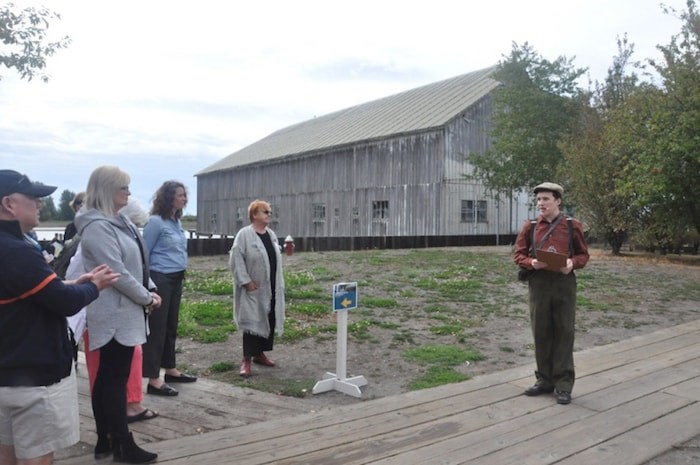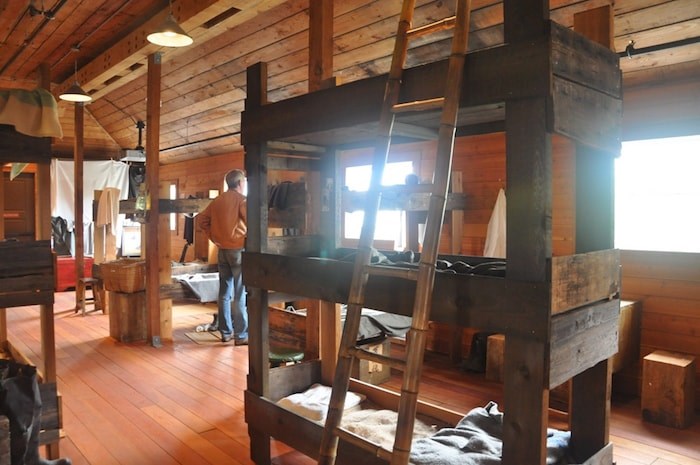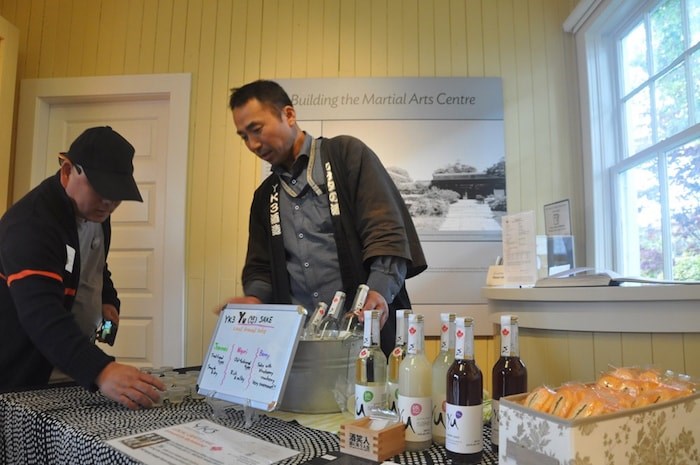You may go to Steveston a lot for the boutique shops, local restaurants and boardwalks strolls, but do you know what the village was like 100 years ago and who lived and worked on the land?
In a brand new historic tour introduced by Tourism Richmond and four other local organizations, “Fisherman John Thomas” takes visitors back to 1914 to “meet” with people then and to taste some of the finest local snacks and beverages.
 Photo by Daisy Xiong
Photo by Daisy Xiong
“[The tour] is all about storytelling and experience,” said Nancy Small, CEO of Tourism Richmond.
“What we do is bring together stories, and bring history alive, so the guests can see and experience something in a way they are not used to. It’s a unique experience.”
The tour departs from the Britannia Shipyards National Historic Site, an authentic representation of a once thriving community of canneries, boat yards, residences and stores.
Among them is the restored house of Otokichi Murakami, a Japanese fisherman and boat builder, and his family, before they were sent to an internment camp during the war. The kettle is on the stove and towels lie on the wooden Japanese-style bath – It’s as if they are still living there.
Next to a few nice sea-facing houses stands the Chinese Bunkhouse, where up to 100 Chinese fishermen squeezed in at the same time. The black and white photos stuck along the posts of the narrow beds reveals the men’s longing for their families far away.
 Photo by Daisy Xiong
Photo by Daisy Xiong
The second stop is the Steveston Interurban Tram, where Thomas will invite all guests on board to be passengers again on a tram that serviced the city from 1913 to 1958. When guests get off the tram, there will be locally produced popcorn and soda waiting for them to take a break with.
One place that cannot be left out from a historic tour is the Steveston Museum, which explores the good and bad times experienced by the local Japanese Canadian community. Here one can enjoy Thomas’s singing in the garden, before tasting three types of Richmond-brewed sake.
The last stop is the Gulf of Georgia National Historic Site, where visitors can travel back to the days when the site was the leading producer of canned salmon in Canada.
Here, machines are in place canning “salmon,” while Thomas tells the story of the men and women on the production lines: some workers had to fork fish from the boat into the cannery for 16 hours non-stop and some had to wash fish with freezing water in the cold, before it was closed in 1979.
 Photo by Daisy Xiong
Photo by Daisy Xiong
After saying goodbye to Thomas, the tour ends with a seafood chowder and a craft beer for people to sit down and enjoy, and share their feelings from the day before heading back by shuttle bus.
Small said she hopes the authenticity of the experience will help people obtain a deeper understanding of Steveston and Richmond and what the place was really like.
“Understanding the past helps inform the future,” said Small.
“Steveston, and Richmond, have such a rich history and I think it’s important to be aware of what happened in the past and to make sure that we are heading in the right path in the future.”
The first tour will run on Oct. 6 and tickets cost $80 plus tax. For more information, check VisitRichmondBC.com.



